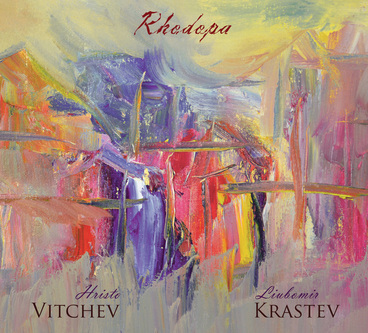
They have been releasing singles from the now-completed album over the last several months and the result is a heightened sense of anticipation for the release date.
The album “Rhodopa” is a collection of Bulgarian folklore and modern Jazz. The title is taken from a mountain range in Bulgaria named for the myth recorded by Plutarch and Ovid of the Queen of Thrace and her husband Haemus, a proud king who called the two of themselves Hera and Zeus, thus offending the king and queen of the Olympian gods who transformed the two into mountains.
“Thracian Mount Rhodope and Mount Haemus, now icy peaks, once mortal beings who ascribed the names of the highest gods to themselves.” (Ovid, Metamorphoses 6:87-89)
So now they stand, separate peaks denied embrace forever, always seeing the other but never touching. This is indeed theme of the album; loved ones isolated by duty and distance, by chance and by choice.
And begins the first song of this touching album entitled “Devoiko Mari Hubava” [Beautiful Young Lady]. It is a traditional Bulgarian folksong and speaks of duty and separation. A young soldier is coming to speak to his lover of his duty and his worry that he has not prepared a home for marriage. She also tells him of her own duties that she is preparing a hope chest for marriage. But their true problem is deeper still.
The unsung lyrics (translated from the Bulgarian) are:
“O pretty girl
Pour me some wine
Wine and white rakija
So we can drink
Tell me your problem
Whose problems are greater?
Crazy hero, and young
My problem is greater
Because I have clothes [a Hope Chest] to make.
My problem is greater, girl
Because I have [military] duties to perform
Because I don’t have a home built.
My problem is greater
Because never will we be together.”
The song begins with Hristo’s walking pace guitar, as if he is approaching the young woman. Liubomir’s clarinet recalls the flowing of wine and the two instruments begin the heart-breaking dialogue until the guitar walks away in a final distancing from the plaintive clarinet. Sweet and sad.
Another of the traditional Bulgarian songs is “Oblache Le Bialo” [Little White Cloud] with another beautiful arrangement by Hristo. The piece opens with the floating of the clarinet as the cloud coming overhead to the son who is far away from home. In the folksong, the singer asks the cloud if it came from flying over father’s garden and hearing from mother’s voice. The cloud is then told to return to mother and tell her that her son will be coming back someday to hug his dear mother.
Hristo’s guitar is determined and compelling as the earthbound voice speaking to the fanciful cloud of Liubomir’s clarinet. It is filled with longing and the cry of absence.
In the third track, Hristo opens with solemn piano chords followed by the supplication of the clarinet. It is entitled “Silent Prayer” and is an original composition of Hristo’s. As a gentle guitar is introduced, the supplication gives way to thanksgiving and the solemn chords are carried aloft by the guitar and clarinet.
Liubomir moves from hymn to jazz and back to hymn in a progression that is wondrously revealing of the nature of prayer and meditation. The final piano chords, touched with the sweet guitar and the joyous clarinet create a sound of fulfillment that is indeed worthy of heaven.
“Improvisation #1” is a melancholy piece that echoes eastern modes and yet adds a western Jazz sense that creates an intriguing dialogue of cultures and musical sensibilities. Liubomir’s clarinet sounds like his playing the entire family of clarinets instead of just the one. One a technical scale, Liubomir’s skill allows him to move away from any limits of key-range with no difficulty.
Once again, Hristo has picked exactly the right musician for the project at hand. This is a true collaboration of like-minded virtuosi. Liubomir Krastev never comes off as a side-man and Hristo never pushes Krastev into that role. Hristo willingly and often surrenders the spotlight.
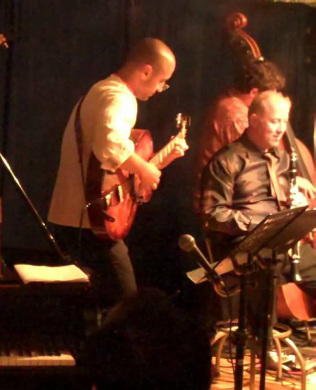
Hristo’s steady and optimistic guitar strumming is almost more bluegrass than blues until he takes the lead at 4:11 and turns in some of his most bluesy jazz heard yet. The interplay between the two musicians create something worthy to accompany a Winnie-the-Pooh story and I mean that in the best possible way.
From that we are taken to another traditional Bulgarian piece entitled “Lale Li Si, Zyumbiul Li Si” [Are You a Tulip, Are You a Hyacinth]. The imagery is pastoral and restful. It is contemplative and nostalgic. This is the song to stop one in their own tracks and let images come to mind as they may. It is a question posed to everyone as to who we are.
It was a question that Dietrich Bonhoeffer asked of himself while in a Nazi prison. In his poem “Who Am I?,” Bonhoeffer wrote: “Who am I? This or the other?/Am I one person today and tomorrow another?”
It is the question put before a flower in the folksong but Hristo puts the question to us in this heartfelt and penetrating arrangement. “Are you a tulip, are you a hyacinth?” Once again, the album’s continued theme of separation is that we are often cut off from our own sense of self-identity.
“Polegnala e Todora” [Todora Took a Nap] is a rather scolding number about a young woman asleep beneath an olive tree. The north wind blew and snapped off an olive branch that fell and awoke Todora from her sweet dream of her first love coming to her with a bouquet and a wedding ring. Again, separation from love and even the dream of love.
The mood of this piece, however, is a bit more comical than all the rest and Hristo and Liubomir indulge themselves fully in the fun. The sound of reproach of the north wind is certainly there but the anger (or mock-anger) is carried along festively.
“Hubava Si Moia Goro” [You are Beautiful, My Forest] is another traditional Bulgarian folksong with lyrics from a poem by Lyuben Karavelov. The poem and its song speak of the beauty of a forest and the scent of youth. The saddest person is the one who only sees a forest once without seeing the renewed beauty of each spring. “Under cold and under snow new life arises.”
The melancholy of the forest’s beauty is that it will succumb to the frost and, even though it will be reborn, it will be with different flowers and grasses and lambs. It is the sadness of not being able to enter the same forest twice (to paraphrase a line from Zen).
It is that sweet melancholy that engages this song, indeed this whole album. The lyricism of Vitchev’s approach enhances the delicacy of the subject of these traditional songs from Bulgaria’s folklore. His watercolor imagery is as fluid as that medium. Krastev’s articulation and intonation are in perfect harmony.
The album’s ending is to the sound of Liubomir’s clarinet and Hristo’s guitar fading as into a forest. It is the sound of being pulled farther and farther from home and family and perhaps this is the separation that runs from start to finish on this magnificent musical experience.
There is a beauty and an elegance that comes through on each and every one of Hristo Vitchev's recordings. The music he composes, the arrangements he crafts, the musicians that he assembles together and the dignity and reverence of his musicianship speak of the heart of the man and his love of life.
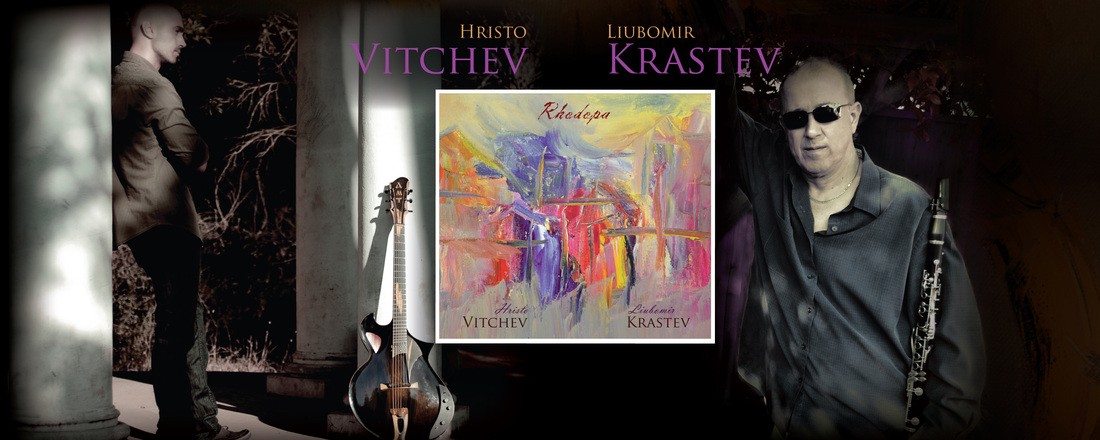
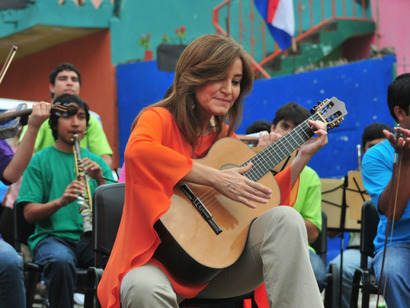
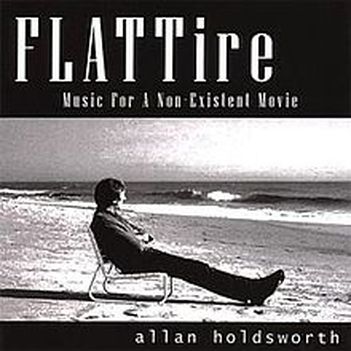
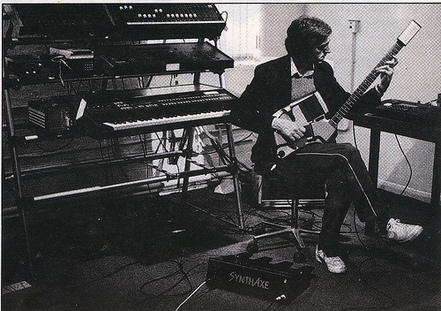
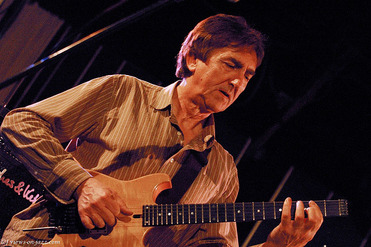
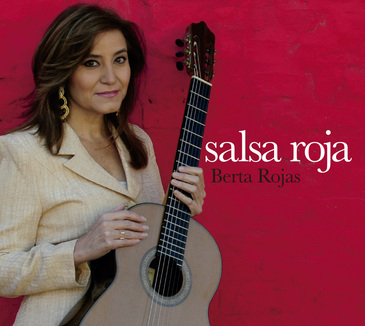
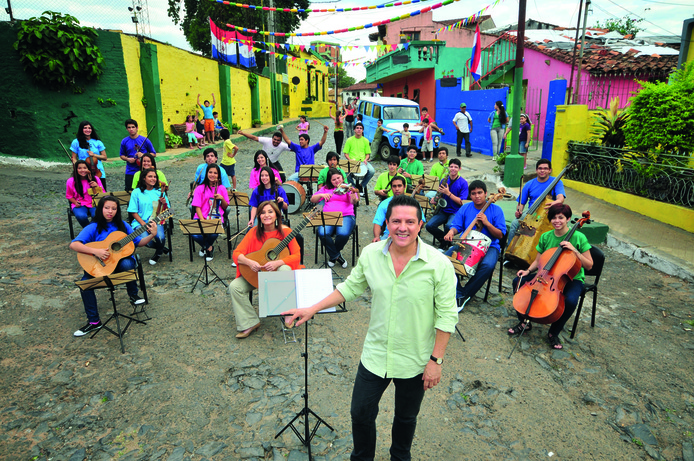
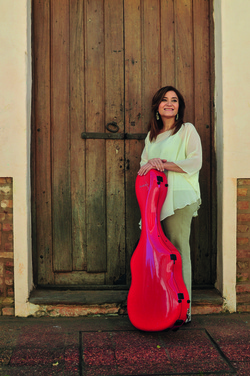
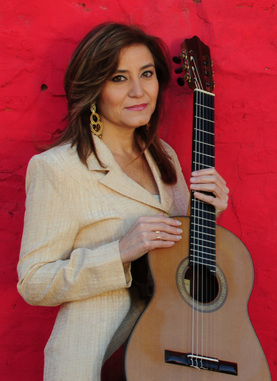
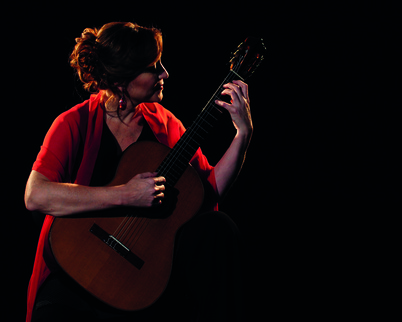
 RSS Feed
RSS Feed
